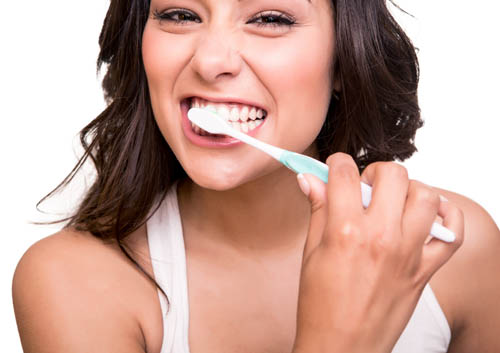Proper Brushing Techniques
March 10th, 2021

Brushing your teeth properly removes the food particles and bacteria that can lead to tooth decay and gum disease. However, you do not want to scrub your teeth or gums heavily. A heavy hand can lead to tooth and gum erosion, as Dr. Hudis and our staff see all too often.
You should also use a soft bristle toothbrush to avoid damaging the surface of your teeth. Make sure the head of the brush fits in your mouth, because if it is too large you will not be able to reach all tooth surfaces. Follow these steps to ensure you are brushing properly.
- Use a small amount of toothpaste on your brush. The recommendation is a pea-sized amount or thin strip on the bristles.
- Hold your toothbrush at a 45-degree angle to the surface of your teeth, angling towards your gums. Use a circular motion on all exterior tooth surfaces, and avoid back-and-forth “scrub” brushing.
- Once you have cleaned the outer surfaces, hold the brush vertically and clean the inner teeth surfaces — the side of your teeth that face your tongue. Do not forget the inner surfaces of your front teeth.
- Finally, finish by cleaning all the chewing surfaces of your teeth. You need to maintain a gentle touch, but make sure you get into the full depth of your molars. The entire process should take about two minutes.
Dr. Hudis and our staff recommend changing your toothbrush every three to four months for best results. Do not forget to clean your tongue, which helps remove excess bacteria from your mouth. Special brushes are available just for cleaning your tongue, and they are easy to use.
Proper care of your teeth also requires flossing on a regular basis. Flossing can be performed before or after you brush. Following up with a quality mouthwash will provide you with even more protection. Do not be afraid to ask the Princeton Restorative & Implant Dentistry team for tips on proper brushing and flossing.






